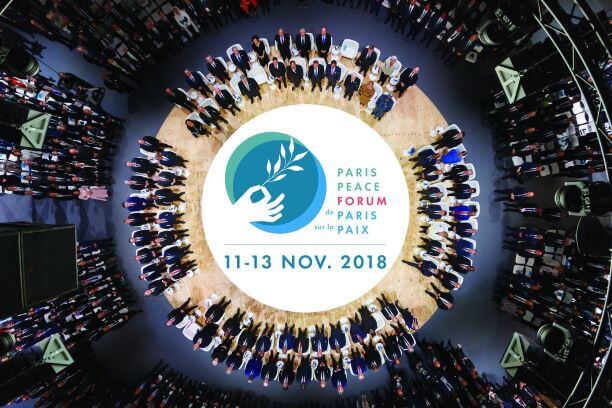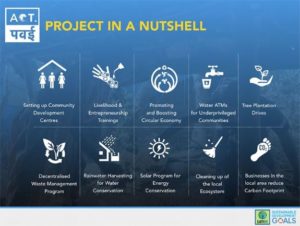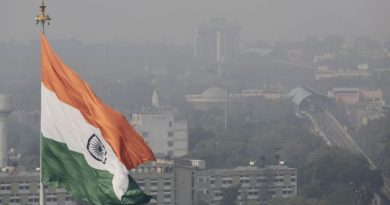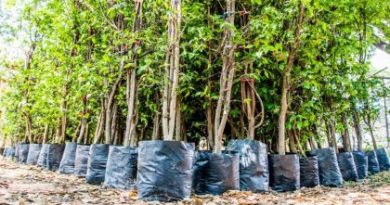Paris Peace Forum Selects 5 Indian Projects During its 1st Edition Meet
 Paris Peace Forum holds its first meet
Paris Peace Forum holds its first meet
Inspired by the design of COP 21 Model the newly formed Paris Peace Forum held its first edition in Paris from 11-13 November. It offers a space for debates, solutions and innovations. This year, a total of 850 projects from 116 countries participated in the event which was held by French President Emmanuel Macron. These projects came under 5 themes- Peace and security, environment, development, new technologies and inclusive economy. Out of 12 0projects from 42 countries and 10 international organisations, as many as 5 projects were selected from India. Selection means a chance for these projects to be showcased at the forum in Paris, where their backers get a chance to meet investors, possible partners and more.
The five projects that have been selected from India are:
ACT Project by Earth5R: Mumbai Based ACT project involves citizens in meeting needs and addressing sustainability issues that affect their local ecosystem. With the help of citizens and various stakeholders, Earth5R team develops new localised solutions that scale the impact to a global level in a replicable model, while implementing UN Sustainable development Goals.
One of its success story is from Powai, ACT Powai seeks to see Powai by 2020 as sustainable and green.
Climate resilient zero-budget natural farming by the government of Andhra Pradesh: Rythu Sadhikara Samstha (RySS), a not-for-profit company fully-owned by Government of Andhra Pradesh has pioneered Zero Budget Natural Farming in the state of Andhra Pradesh. 
The aim is to reach universalization of Natural Farming practices by reaching 6 million farmers and converting 8 million hectares into natural farming fields.
The word Zero Budget refers to the zero net cost of production of all crops (inter crops, border crops, multi crops). The inputs used for seed treatments and other innovations are locally available.
The ZBNF process works on 4 important non-negotiable guidelines by Padma Shri Awardee, Subash Palekar: Bijamrita (Seed Treatment using local cowdung and cow urine), Jiwamrita (applying inoculation made of local cowdung and cow urine without any fertilizers and pesticides), Mulching (activities to ensure favorable microclimate in the soil), and Waaphasa (soil aeration).
Decentralized electricity network based on solar energy over blockchain by NIMRAY-Solar:  Gurgaon based Nimray brings clean energy to communities of all sizes. They say that by supplying both the innovative Solar technology and an accessible energy network that allows home energy generators to trade clean electricity profitably with others. All based on a newly developed blockchain technology that is seeking to revolutionize the industry. This project relies on the idea that renewable energy can offer an economically viable means of providing connections to people and communities deprived from access to electricity.
Gurgaon based Nimray brings clean energy to communities of all sizes. They say that by supplying both the innovative Solar technology and an accessible energy network that allows home energy generators to trade clean electricity profitably with others. All based on a newly developed blockchain technology that is seeking to revolutionize the industry. This project relies on the idea that renewable energy can offer an economically viable means of providing connections to people and communities deprived from access to electricity.
A collaborative academic forum known as the Network of Southern Think Tanks: It is a collaborative academic forum which was formed at Conference of Southern Providers held in Delhi in April 2013. It provides a platform for the exchange and systematization of knowledge and the development of a common narrative among South-South partners.
STAR C (Solar Technology Application Resource-Center) by International Solar Alliance:  STAR C project was one of the two projects that was announced last month after the ISA meeting in India, to spread knowledge and capacity-building on solar energy and infrastructure projects. According to Director-General of the International Solar Alliance Upendra Tripathy, the aim is to set up 121 centres, one in each presently eligible member-country. These centres are being supported by the Schneider foundation, Tata Foundation and the Phillips foundation. Each member-country will nominate five trainees every year to be trained at these centres. They will be called master trainers. Presently 44 countries have signed and ratified the ISA framework agreement. This is out of the 68 countries that have signed the agreement.
STAR C project was one of the two projects that was announced last month after the ISA meeting in India, to spread knowledge and capacity-building on solar energy and infrastructure projects. According to Director-General of the International Solar Alliance Upendra Tripathy, the aim is to set up 121 centres, one in each presently eligible member-country. These centres are being supported by the Schneider foundation, Tata Foundation and the Phillips foundation. Each member-country will nominate five trainees every year to be trained at these centres. They will be called master trainers. Presently 44 countries have signed and ratified the ISA framework agreement. This is out of the 68 countries that have signed the agreement.




